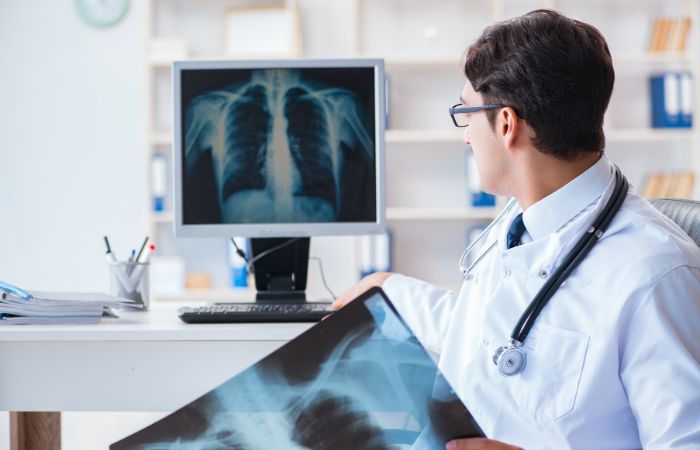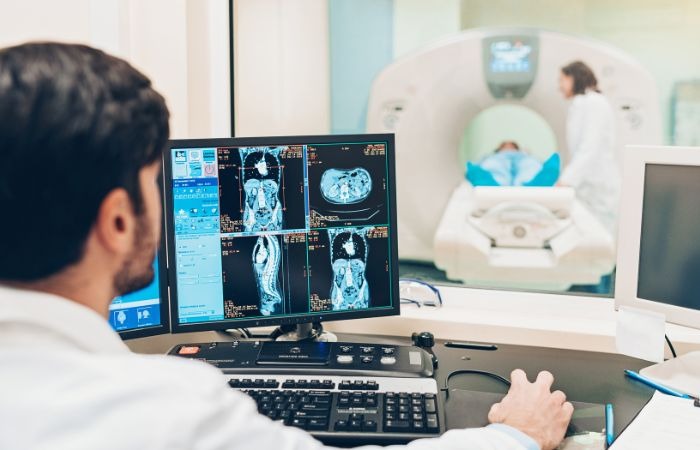
Medical imaging is a vital tool for diagnosing a variety of health conditions. From X-rays and CT scans to MRIs and ultrasounds, these tests allow healthcare providers to see inside the body without invasive procedures. However, you might have noticed that certain medical imaging tests come with specific instructions, such as fasting beforehand. If you've ever wondered why fasting is necessary for some tests, this blog will explain the reasons behind this requirement and how it affects the quality of the images.
Whether you're preparing for a test at a radiology scan centre or consulting a radiologist in Mumbai, Pune, Nagpur, Ahmednagar, or Bhopal, understanding the importance of fasting can make the process smoother and more effective.
Medical imaging involves a range of technologies used to create images of the body’s internal structures. These include X-rays, CT scans, MRIs, ultrasounds, and nuclear medicine tests. Each type of imaging serves a specific purpose, helping doctors diagnose and monitor conditions like fractures, infections, tumors, and more. The effectiveness of these tests often depends on patient preparation, which is why following the provided instructions is crucial.
Fasting before a medical imaging test is not always necessary, but it is essential for specific tests to ensure accurate and clear results. Here are the key reasons:
For imaging tests like abdominal ultrasounds or CT scans, fasting helps ensure that the stomach and intestines are empty. Food and drink can create shadows or distortions in the images, making it difficult for the radiologist to interpret the results accurately.
Some tests, such as CT or MRI scans with contrast agents, require fasting to reduce the risk of nausea or vomiting after the contrast is administered. A clear digestive system also ensures the contrast agent works more effectively, providing detailed images.
In tests like abdominal or pelvic ultrasounds, fasting reduces the amount of gas in the stomach or intestines, which can interfere with the imaging process. A clearer field of view helps the radiologist detect abnormalities more accurately.
For certain imaging tests, such as PET scans, fasting helps stabilize blood sugar levels. High glucose levels can interfere with the test results, as the imaging process relies on tracking the uptake of a glucose-based tracer.

Not all medical imaging tests require fasting. Below are some common tests that often have fasting guidelines:
Fasting for 6-8 hours is typically required to ensure the stomach and intestines are empty, allowing for a clear view of organs like the liver, gallbladder, and pancreas.
Fasting for 4-6 hours is often necessary to prevent nausea from the contrast agent and to improve the clarity of the images.
Similar to CT scans, fasting is recommended to avoid discomfort and enhance the effectiveness of the contrast agent.
Patients are usually required to fast for at least 6 hours before a PET scan to stabilize blood sugar levels and ensure accurate tracer uptake.
Proper preparation is key to obtaining accurate results from your imaging tests. Here are some general tips:
If your test requires fasting, make sure to avoid food and drink (other than water) for the recommended time. If you have any concerns, consult your radiologist or the staff at your radiology scan centre.
Loose-fitting clothes are recommended for imaging tests, as you may need to change into a hospital gown or lie still for extended periods.
Let your doctor or radiologist know about any medications you are taking. In some cases, you may need to adjust your medication schedule before the test.
Unless instructed otherwise, drink plenty of water before your test to stay hydrated. This is especially important for imaging tests that require contrast agents.
When it comes to medical imaging tests, choosing a reliable facility is crucial. Diagnopein offers state-of-the-art imaging services in Mumbai, Pune, Nagpur, Ahmednagar, and Bhopal, providing a range of diagnostic options under one roof. Our experienced radiologists ensure that every test is performed with precision and care.
Diagnopein is equipped with the latest imaging equipment, ensuring high-quality results for every test.
Our team of expert radiologists works closely with patients and doctors to provide accurate and timely diagnoses.
With centers in Mumbai, Pune, Nagpur, Ahmednagar, and Bhopal, Diagnopein is easily accessible, making it simple to find a trusted radiology scan centre near you.
Fasting before certain medical imaging tests is a crucial step that ensures accurate results and reduces potential complications. Whether you're undergoing an ultrasound, CT scan, or MRI, following your preparation instructions can make all the difference. If you’re searching for a reliable radiology scan centre, Diagnopein is your trusted partner for diagnostic imaging. With experiencedradiologists and advanced facilities in Mumbai, Pune, Nagpur, Ahmednagar, and Bhopal we are dedicated to providing exceptional care. Schedule your imaging test with us today and experience the Diagnopein difference.